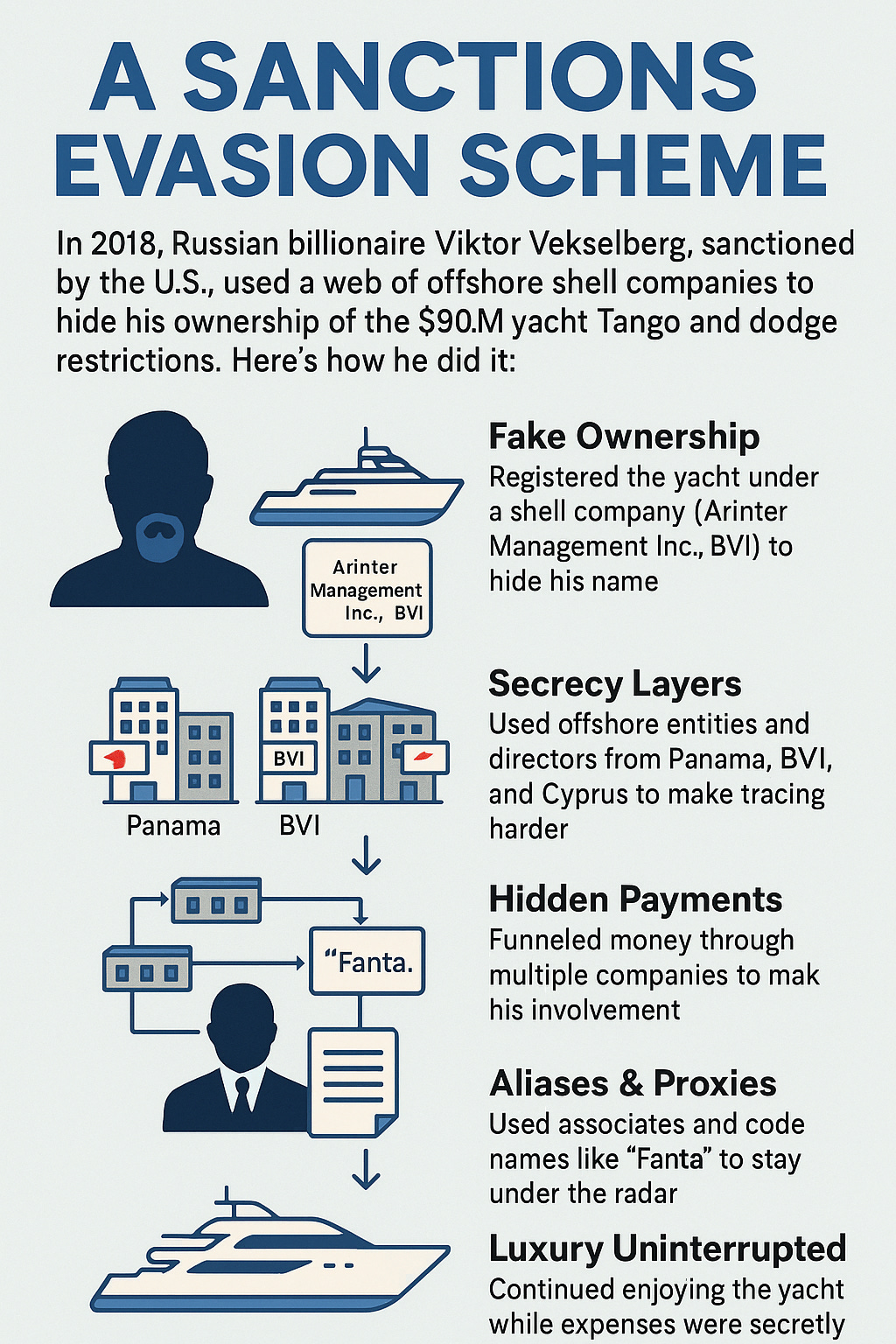Issue #14 - How to Detect PEP-Linked Sanctions Evasion in 2025
Polar Insider | Issue #14 | Week of 4 June 2025
🧊 Introduction
Hello and welcome to Polar Insider! This week, we’re uncovering the hidden world of sanctions evasion by politically exposed persons (PEPs). PEPs, often wealthy and influential, are under the spotlight as authorities intensify their efforts to track down hidden assets and enforce financial penalties. From shell companies to crypto tricks, we’ll explore how compliance teams can stay ahead.
Here’s what you’ll find inside this issue:
📌 Top Story – How to Detect PEP-Linked Sanctions Evasion in 2025
🌍 Regulatory Roundup – What’s happening globally to stop PEPs from hiding assets
🔎 Case Study – Hidden Condos: How Sanctioned Oligarchs Evaded Restrictions via Family & Shell Companies
🧰 Compliance Toolkit – Guidance, red flags, and resources for PEPs
📌 Top Story – How to Detect PEP-Linked Sanctions Evasion in 2025
Sanctions evasion by PEPs is becoming more sophisticated, with new techniques emerging every year. Here’s how it works and what to watch for in 2025.
Common Evasion Tactics
Shell Companies: Layers of fake businesses across multiple countries hide PEPs' involvement.
Family and Friends: Assets are shifted to spouses or trusted associates just before sanctions hit.
Fraudulent Documents: Paper trails are manipulated with fake invoices, loans, or ownership restructures.
Safe-Haven Countries: Funds are routed through regions less strict about sanctions.
Crypto Assets: Cryptocurrency platforms make it easier to hide and move money.
Geopolitical shifts in 2025 are driving PEPs from sanctioned regimes to find creative ways to evade sanctions, including using alternative payment networks like Russia's SWIFT alternative and exploring gold-backed digital currencies.
This "de-dollarization" trend requires compliance teams to monitor non-traditional channels like barter trades, crypto exchanges in relaxed jurisdictions, and state-backed digital payment systems.
Regions like the UAE and Turkey have become key transit points for sanctioned funds, drawing increased global scrutiny.
Keeping an eye on these signs, along with advanced monitoring tools, can make all the difference for compliance teams in staying ahead of evasive actors.
🌍 Regulatory Roundup
Here’s what’s happening globally to stop PEPs from hiding assets.
United States: New sanctions in early 2025 exposed clever evasion tactics from Russian and Chinese actors. Nearly 400 individuals and companies aiding these schemes were penalized.
United Kingdom: In August 2024, the UK’s National Crime Agency recovered over $1 million tied to sanctioned oligarch Petr Aven, marking its first successful sanctions evasion forfeiture. This milestone is expected to drive stronger enforcement as regulators boost resources to match their tough stance on Russian PEPs.
European Union & Allies: The Russian Elites, Proxies, and Oligarchs (REPO) Task Force froze billions in assets from Russian elites. New laws in the EU also target those who help PEPs evade sanctions, making lawyers or businesses that assist guilty by association.
For compliance teams, these crackdowns highlight the need to stay vigilant and adapt quickly as regulations evolve.
🔎 Case Study
Hidden Condos: How Sanctioned Oligarchs Evaded Restrictions via Family & Shell Companies
The Scheme Uncovered:
Two sanctioned Russian oligarchs, Valeri Abramov and Viktor Perevalov, covertly retained control of luxury condos in Florida. They used relatives and shell companies as fronts, bypassing U.S. sanctions to retain and profit from these assets.
Tactics Used:
Property titles were transferred to spouses, children, and Delaware shell companies at suspiciously low prices (e.g., $100). These condos were later rented out, bringing in nearly $840,000 in income over several years.
Enforcement Actions:
U.S. authorities fined the involved real estate company over $1 million and pursued criminal charges against key facilitator Roman Sinyavsky. Investigators unravelled the scheme through text messages, financial transactions, and property records.
Key Compliance Lessons:
· Watch for sudden title transfers or nominal ownership changes post-sanctions.
· Flag the use of shell companies or proxies, especially with no clear business rationale.
· Monitor irregular transaction patterns, such as underpriced property deals.
· Be vigilant about intermediaries (e.g., lawyers, brokers) facilitating high-risk PEP activities.
Authorities are tightening their grip on sanctions evasion, holding gatekeepers accountable and closing loopholes. Strengthen your compliance program by spotting red flags and enhancing due diligence on high-risk transactions.
🧰 Compliance Toolkit
Boost your team’s effectiveness with these essential resources:
FinCEN Alert on Russian Elites
Lists red flags like sudden ownership changes and offshore private investments tied to PEPs.
📎 Link → FinCEN Alert Involving Russian Elites, Oligarchs and Family members
Family Members
FATF Guidance on PEPs
Outlines effective ways to identify and monitor politically exposed clients.
UK Typology Report
Details evasion methods, including the use of enablers like lawyers and accountants.
Use these insights to strengthen your internal systems and improve staff training on detecting sanctions evasion.
💬 Quote of the Week
“Today’s actions frustrate the Kremlin’s ability to circumvent our sanctions and get access to the goods they need… This should reduce Russia’s access to revenue and goods.”
– Wally Adeyemo, U.S. Deputy Treasury Secretary
🎁 Bonus for Subscribers
Don’t forget to download your copy of the 2025 Financial Crime Regulatory Tracker (USA, UK, AU).
Stay on top of AML requirements and enforcement trends globally.
👉



